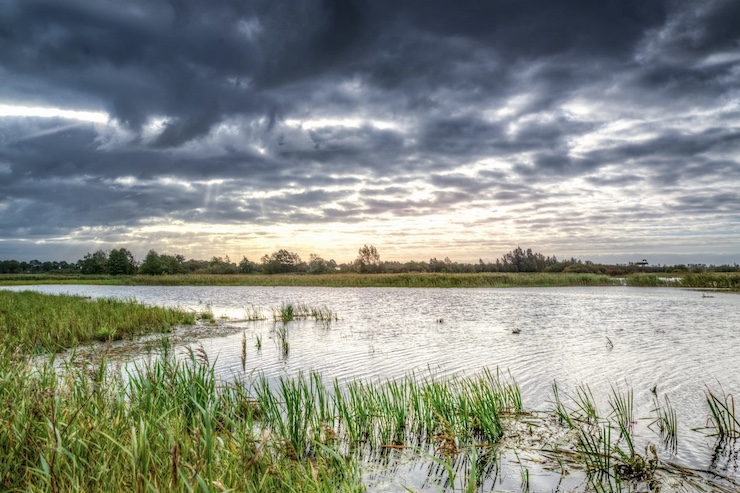
Louisiana is often referred to as Bayou Country, due to the marshy waterways scattered throughout the state. For many, the bayous are deeply embedded in the state’s culture. A rich and diverse plant and animal life is supported by the bayous of Louisiana, creating a biodiversity that is unique to the region. The Louisiana Department of Wildlife and Fisheries (LDWF) is responsible for monitoring and protecting the waterways of Louisiana. LDWF’s mission statement is “To manage, conserve, and promote wise utilization of Louisiana’s renewable fish and wildlife resources and their supporting habitats through replenishment, protection, enhancement, research, development, and education for the social and economic benefit of current and future generations. To provide opportunities for and to encourage the use and enjoyment of these resources in a safe and healthy environment both on land and on water.”
In March of 2018, LDWF adopted a new technology, drones, to assist in their mission goals. Over the last decade, more and more police, fire, and emergency departments across the United States have developed drone programs. These drones help officers perform their jobs with a higher rate of accuracy while maintaining their safety. LDWF’s drone program was initiated under the leadership of Enforcement Division Colonel Sammy Martin, whose department is responsible for law enforcement for the LDWF. After Col. Martin’s retirement in 2020, he was replaced by Col. Chad Herbert, a 27 year veteran of the LDWF law enforcement department.
Since Col. Herbert’s promotion this past summer he has seen that the drone department is utilized frequently. In light of restrictions put on his officers because of COVID-19, using a drone has enabled his officers to preserve the highest standards while still maintaining social distancing. One of the activities Col. Herbert’s drone officers have been participating in is the preservation of some of the plants and animals unique to the bayou, many of which are rare and endangered.
LDWF’s department of conservation has been compiling a database on the habitats of Louisiana. Some of the critical species they monitor for are the Louisiana black bear, Red-Cockaded woodpecker, and Whooping crane. As stated on LDWF’s website, “So far, program staff have compiled more than 10,000 occurrence records of rare, threatened, and endangered species, unique natural communities, and other distinct elements of natural diversity and identified more than 350 ecologically significant sites statewide.” With the help of LDWF’s specially trained drone officers, the conservation department has been able to cover more ground and track species to add to the database.
But perhaps how the drone program has been most beneficial is through the monitoring of illegal fishing activities. Harvesting for shrimp, oysters, and clams is a part of bayou culture and a major source of income. To ensure that safe harvesting practices are followed, LDWF has established an oyster, shrimp, and clam task force. The responsibilities of these task forces include patrolling waterways to see that all fishing vessels are visibly marked with an ID number and are being operated in safe water zones. A concern for the task forces is when fishers harvest from areas that have been banned because of pollution.
Unfortunately, some fishers choose to harvest from polluted water because they are more likely to find a large haul there. The oysters, shrimp, or clams harvested in polluted water can pose serious health risks to anyone who eats them. If caught harvesting from polluted areas, fishers can be fined between $900-$950 and receive a 120 day jail sentence. Violators can also have their harvesting license revoked for up to a year, and be subject to 40 hours of community service. Over the last year Col. Herbert’s task forces have used the drone to apprehend several fishers in violation of oyster harvesting.
On December 20, 2019, LDWF apprehended 37 year old Alexander Antonio Amaya-Zelaya from Terrytown, LA for violating harvesting practices. According to a report released by LDWF, “Agents responded to complaints of illegal oyster harvests in lower Calcasieu Parish. Using aerial surveillance from a drone, agents observed and recorded Alexander illegally harvesting oysters in polluted waters. The vessel also did not display the required numbers visible by air and did not have a human waste receptacle.” Agents seized the vessel and returned 10 sacks of oysters to the water. Similar arrests were made this past December for illegal oyster harvesting. On December 29, 2020, in Plaquemines Parish, a drone was used to cite Port Sulphur residents Nelson C. Williams III and James Garrison. Then on the 31st, Joby A. Landry and Brendon K. Duhon from Lake Charles were cited after a drone filmed them illegally harvesting oysters in the polluted waters of Cameron Parish.
The footage captured with the drone will be submitted to the district attorney for prosecution. Nelson Williams is facing serious charges as this is his fifth offense. He faces hefty fines, jail time, community service, and having his license revoked for up to 10 years. LDWF hopes that other fishers will hear of stories like this and change their habits. There is no reason to be harvesting creatures from polluted water. The bayou is expansive and there are plenty of safe fishing locations. Col. Herbert and the LDWF want violators to know that with a drone at their disposal, they will be upholding the highest standards for all who fish in the bayou.



